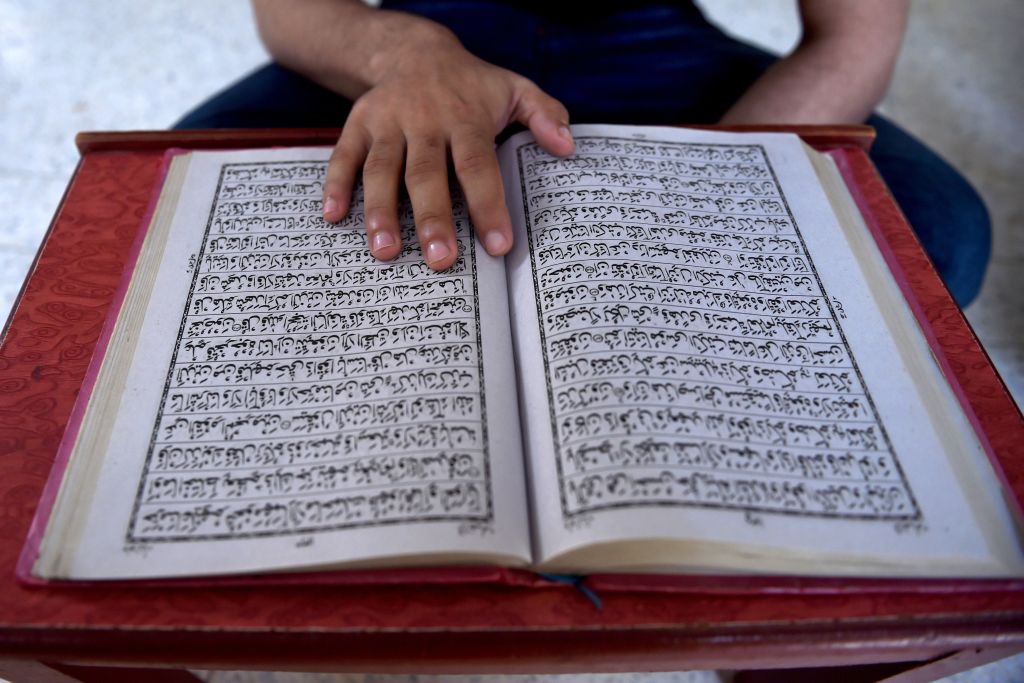It was only a matter of time before a Pakistani cleric blamed the Covid-19 outbreak on women. It just happened that the allegation came on national television. Pakistan’s most popular Islamic cleric, Tariq Jameel, claimed ‘immodest women’ caused the pandemic in a telethon broadcast throughout the country as prime minister Imran Khan watched on.
The day after the telethon, Khan decided to speak at length on ‘vulgarity’ spreading in Pakistan owing to inspirations from ‘Bollywood and the West’, as exemplified by the growing divorce rate in the UK. This was hard to take from a man with a personal divorce rate of 67 per cent, who has spent much of his adult life living as a playboy.
While Khan didn’t go as far Tariq Jameel, he has nonetheless objectified nurses even after becoming prime minister, and has condemned feminism for ‘degrading mothers’. However, where Khan’s understanding – or consistency – over Islam can be gauged by his drawing of parallels between the Medina State and modern day China, it is the Islamic clerics who continue to hold a dangerous clout over religious teachings in Pakistan.
Almost a week after the telethon, following a backlash from rights groups, Tariq Jameel tendered what he claimed was an ‘apology’ in which he maintained that he ‘hadn’t targeted any specific gender’. Of course, Covid-19 isn’t the first crisis pinned on women by the clergy. Multiple Islamic clerics have reiterated many a time that earthquakes are caused by ‘promiscuous’ women. Such claims have been made by Islamic preachers around the world over the past 1400 years. This is because they’re all quoting the same hadith (saying of Prophet Muhammad) cited in multiple hadith compilations.
It’s true that Islam isn’t the only religion used by some to scapegoat women for crises and natural disasters. Orthodox Jews too have blamed ‘immodest women’ for coronavirus, while conservative Christian pastors have pointed the finger at ‘homosexuality’.
Even so, Islam still remains the only organised religion with widespread deterrents against critique, and in turn, long-pending reform. If it’s not the 13 states sanctioning death for apostasy, underlining problems within the scriptures can taint you with the ludicrous ‘Islamophobe’ label, even if you’re a Muslim.
In Pakistan, everything from child marriage to domestic violence, is justified through quoting the hadith and Quran. An entire body of clerics, the council of Islamic ideology (CII) is constitutionally sanctioned with the responsibility of ensuring that no legislation or policy contradicts the Islamic scriptures. In the past, the CII has endorsed wife beating. Earlier this year, the council was asked to review a film which was banned in Pakistan.
The Pakistani constitution, which mandates the CII, itself upholds Islamist supremacism and grants sovereignty to Islamic scriptures. Those opposing the scriptures’ usage for any form of bigotry – such as persecution of women – can be silenced by the penal code upholding capital punishment for blasphemy. As a result, in addition to the scriptures, the clergy is further emboldened by the constitution to a point that Islamist mobs take it upon themselves to regularly dish out vigilante justice.
Islamists are further strengthened by the all-powerful military keeping checks on civilian leaders, who have only been allowed to function under the army’s shadows throughout Pakistan’s troubled democratic history. The unique clout of religion in the country can further be gauged by the fact that despite the holiest Islamic sites around the world having been closed down owing to Covid-19, Pakistan still hasn’t been able to shut down all of its mosques.
It’s little wonder that in this climate the likes of Tariq Jameel are largely immune from criticism, despite his comments about women. Even those who have in the past taken strong stands against ‘slut shaming’ in the country have been queueing up to defend him. While the federal minister for human rights Shireen Mazari, who had issued an admirable condemnation of Jameel’s original statements, apologised for ‘hurting’ the cleric after his non-apology.
To undo the clergy’s hegemony over the state and the religion, Pakistan needs to follow through with its democratic billing and secularise its constitution. That requires subordinating religious theology to the Universal Declaration of Human Rights that it adheres to. In any conflict between egalitarianism and Islam, regardless of authenticity of interpretations, the former should triumph.






Comments